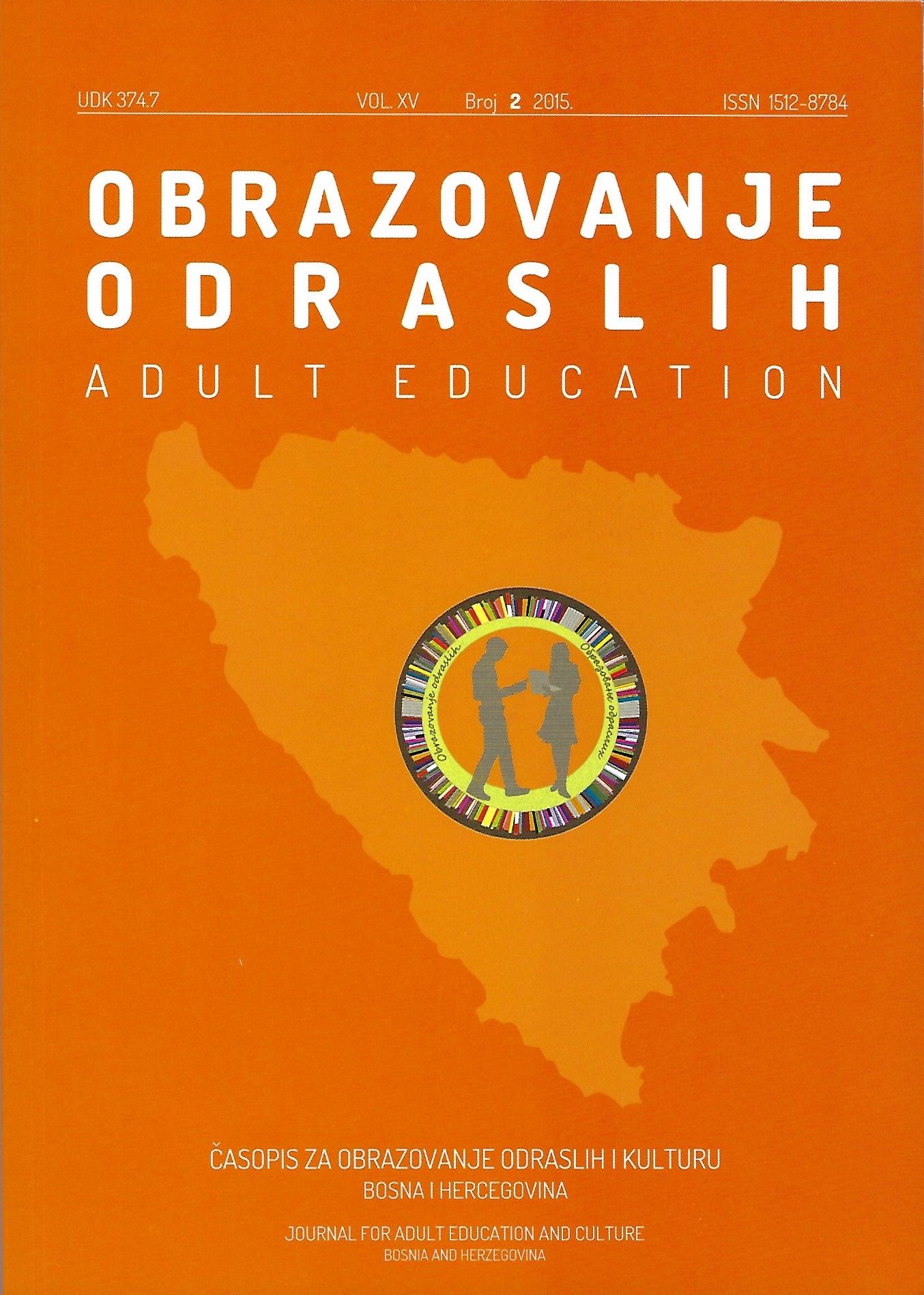Korištenje normativnog psihološkog ugovora u funkciji postizanja kvalitetnijeg obrazovnog procesa
The use of normative psychological contract in order to achieve a more qualitative educational process
Author(s): Mirna MarkovićSubject(s): Education, Psychology
Published by: JU ‘’Bosanski kulturni centar Kantona Sarajevo’’
Keywords: normative psychological contract; student-assistent; relationship; expectation of the roles;
Summary/Abstract: Upon entering in each relatively unknown and new context , such as new course, students enter with certain expectations which they may not always be fully aware of. Like the students, the teachers and assistants also generate certain expectations, mostly based on psychological aggregation of past experience. The fact is the especially the implicit expectation of both will somehow shape their behaviour and attitudes about this course. The expectations from both parties usually represent a range of very specific, mostly implicit, expectations that from the basis of the psychological contract. This contract is often defined as a ''tacit'' agreement between the parties (students and teachers/assistants) on the nature of their exchanges and the way they realize their relationship in the process of teaching. This paper attempts to examine the content of the normative psychological contract that defines the common expectations of students and assistents related to the rights and obligations that implice the role of the student , as wells as the rights and obligations that implice the role of assistants in relation to the student - assistent relationship in one of the teaching courses. The study was conducted on a sample of N = 38 students in the fifth academic year od the Department of Psychology at the Faculty of Philosophy of the University of Sarajevo. The modified nominal group technique was used to collect individual data and achieve a group consensus on the content of the normative psychological contract. In particular, the attention was drawn to the efficient way of collection and using information about students' expectations, which can be considered whwn defining and clarifying mutual expectation on the role of students and teachers/assistants in the educational process. An effort was made to point out on the example of concrete steps the acceptability and applicability of the method in defining the normative psychological contract of any educational group. Finally, the study resulted in a proposal of a Scale for the evaluation of the fulfilment of psychological contract. This scale would be useful to the adult educators in creating of individualized Scale for the evaluation of the fulfilment of psychological contract in a specific educational context.
Journal: "Obrazovanje odraslih" - Časopis za obrazovanje odraslih i kulturu
- Issue Year: XV/2015
- Issue No: 2
- Page Range: 69-100
- Page Count: 32
- Language: Bosnian

